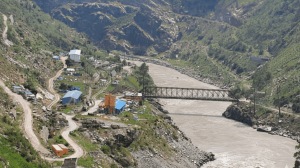Some Questions For The Taxman
The Task Force on Direct Taxes, headed by Vijay Kelkar, has suggested sweeping changes in personal and corporate income tax. While the repor...

The Task Force on Direct Taxes, headed by Vijay Kelkar, has suggested sweeping changes in personal and corporate income tax. While the report will go a long way in achieving better tax collection and a simpler tax regime, some of the recommendations need clarification.
For example, raising the income tax exemption limit from Rs 50,000 to Rs 1 lakh is welcome as it would benefit the lower income group. But this benefit stands nullified by the abolition of standard deduction. The Task Force has also called for dismantling the 8216;8216;exemption raj8217;8217; and wants to do away with tax incentives and concessions under various heads, including under section 88 which allows for an exemption of up to Rs 80,000. A tax payer can, at present, save up to Rs 16,000 under this scheme by investing Rs 80,000. Scrapping this provision will adversely affect savings and consequently reduce funds with the exchequer as most of the savings schemes like LIC, ULIP etc are with the government.
House building activity has picked up momentum and injected a new thrust into the economy in recent years because of substantial tax concessions for housing loans. This has helped young professionals who have just entered the big-paying employment market to own houses, apart from generating a large job market. The economy on this front is booming with an increasing demand for housing material like steel and cement. All this may come to naught if tax concessions for housing loans are removed.
The recommendations call for removal of all incentives except for the handicapped. If not working women, at least senior citizens need to be protected. Taxing agricultural income of non-agriculturists is a welcome suggestion, but an effective mechanism has to be worked out to identify non-agriculturists who launder money in the name of agricultural income. The suggestion to cut corporate tax from 36.75 to 30 is a bold one. It is hoped that the industry would reciprocate by prompt tax compliance. This must also enthuse them to be sensitive to social concerns and inspire them to play a more responsible role in promoting social causes.
I am not sure if the Task Force has suggested how to bring a vast majority of professionals like doctors and lawyers into the effective tax net to make them pay their dues to the nation. Concrete measures are required for widening the tax base to cover a vast majority of professionals like doctors, chartered accountants and lawyers. Similarly, other lucratively self-employed people should also be brought into the tax net.
Judging The Judiciary
The government is planning to set up a judicial commission which will look into, among other things, the sensitive issue of appointment of judges. The move is laudable, and the opposition should cooperate with the government in this matter. All political parties should acknowledge the importance of protecting the high credentials of our judiciary. Possibly the least compromised pillar of Indian democracy, the judiciary has courted sporadic controversy in recent years due to the questionable conduct of a few judges. In 1993, the then Prime Minister Narasimha Rao handed over all power of the government to the Chief Justice. While the judiciary must be protected against all interference, absolute concentration of power creates an imbalance not welcome in any system.
The new Chief Justice of India G B Pattanaik has expressed his desire to protect the judiciary against all aberration. For that, we have to make the system as foolproof as possible. While the pre-1993 position cannot be restored, setting up a commission with the CJI, three Supreme Court judges, the Home Minister and Law Minister as members will go a long way in bolstering the CJI8217;s resolve. The Leader of the Opposition should also be included in the commission to give it an impartial character. With the formation of this commission we can expect better scrutiny of candidates before judicial appointments.
360-Degree Turn On Security
There8217;s a significant U-turn in the Prime Minister8217;s security detail: the staple Ambassador will soon be overtaken by the state-of-the-art BMW. The Prime Minister8217;s security experts were worried about the ability of the Ambassador to wheel around in time, to make a sharp U-turn in a crisis situation. The PMO has placed an order for special BMW security models that can whirl around 360 degrees. These cars are being manufactured by BMW for the government alone.
- 01
- 02
- 03
- 04
- 05































